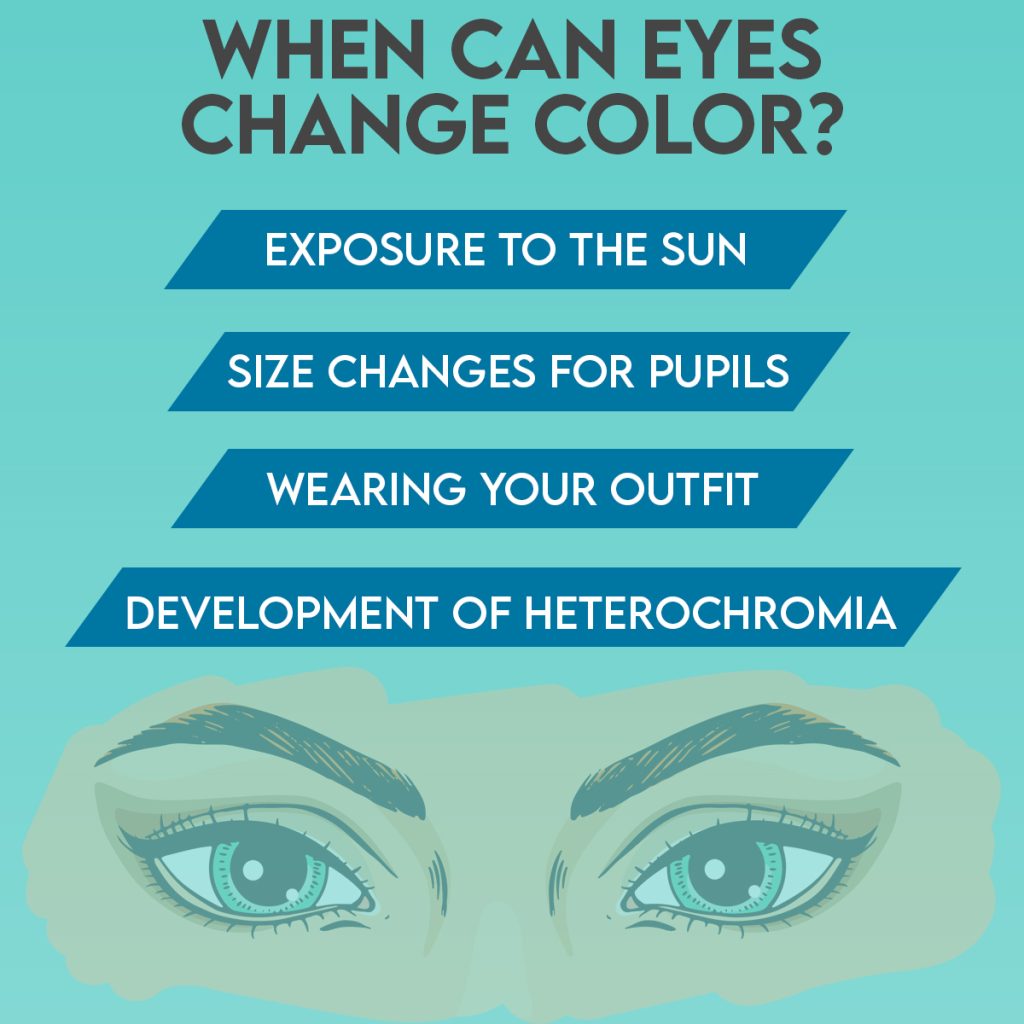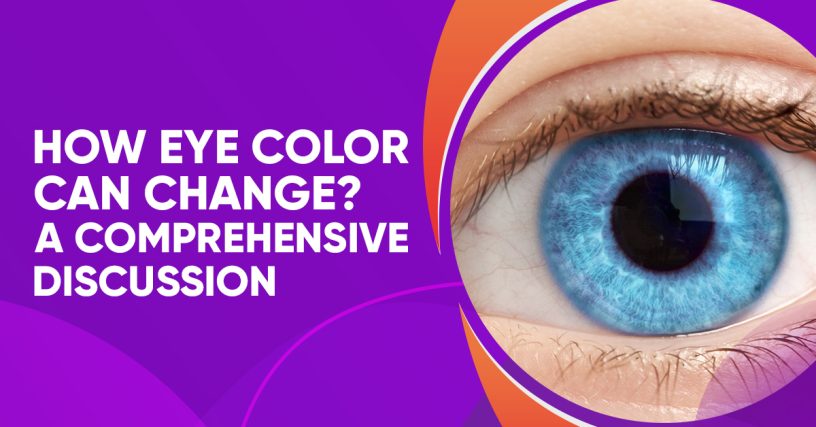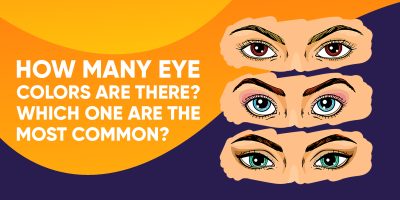Have you ever discovered that your eyes’ color changes when you gaze in the mirror?
Does the color of your eyes seem to have changed from the day before to the day after? If that happens, then it has some valid reason. But the unique eye colors are attractive.
Just because of that, eye color becomes even more attractive when your eyes seem to change hue unexpectedly or even over time.
Can eyes hues be transformed? Is this a natural or unnatural process? In this blog, we will find out why and how eye color can change.
Table of contents
How Does Eye Color Develop?
You probably had blue eyes when you were a baby. Due to a lack of melanin in their bodies and eyes, babies’ eyes appear this shade of blue.
Melanin production began as soon as your body was exposed to light. And as a result, your hair, skin, and eyes began to change color.
As a result of their limited exposure to light, newborns’ complexion, hair, and eyes tend to be paler than adults. Skin, eye, and hair color are all influenced by a person’s ancestry.
You might have had the same dark pigments in your skin and hair at birth if your parents had darker skin and hair.
To create more melanin pigments in your irises, your eyes must be exposed to light for a more extended period.
There is a chance that you may not have recognized if you were born with dark brown eyes.
For all we know, the color of your eyes didn’t change. The lightness or darkness of your eyes is determined by your genes, not by how much or how little light you are exposed to.
When Can Eyes Change Color?
Three years after birth, a person’s eye color is usually set in stone. It’s rare for the color of one’s eyes to change after they’ve been dyed.

Changing your eye color involves a few activities:
1. Exposure To The Sun
Your body produces more melanin as a result of sunlight exposure. Continued exposure to sunlight may produce a tiny change in your eye color. Consequently, depending on your present eye color, your eyes may seem deeper brown, blue, green, or gray.
Sunlight may show colors that were previously in your eyes much more clearly. You may be able to detect hues in your irises that you weren’t previously aware of, thanks to exposure to natural sunshine.
2. Size Changes For Pupils
The size of your pupils may also be a factor in any color changes you experience in your eyes. A darkening effect may be seen in the irises, for example, if your pupils widen.
When your pupils are narrower, on the other hand, your eyes may look lighter. The contrast between the black of the pupil and the surrounding iris is to blame for this shift.
3. Wearing Your Outfit
Colors that complement each other may be remembered from elementary, middle, high school, and college art lessons. Putting reds and greens next to one other brightens the reds and makes the greens look lusher and more vivid. Your eyes may look brighter or darker depending on your clothing.
4. Development Of Heterochromia
You may have acquired an uncommon disorder known as heterochromia, in which case your eyes’ color has altered dramatically. Each iris is varied in color because of heterochromia.
Your irises may be partially heterochromic, implying that some are different shades. The iris may seem green in one corner yet blue in the rest. An iris disorder known as central heterochromia means that your iris contains two distinct colors.
If you’re born with this ailment, it doesn’t affect your well-being. However, heterochromia may also be caused by:
- The removal of a cataract from a patient’s eye.
- Swollen, red eyes.
- Asthma in the eyes
- Injuries to the eye.
- Symptoms of glaucoma may begin to appear.
- The iris is developing malignancies.
Ophthalmic and general health may be adversely affected by some of these factors. As an adult, you may need to contact an ophthalmologist or optometrist if you observe a significant change in the color of your eyes.
Final Words
According to some eye specialists, your eyes don’t change color. Instead, your eye color is determined by a combination of environmental variables and genetics on any particular day.
If you haven’t seen a noticeable shift in your eye color, you don’t need to worry about anything. However, if you’ve observed a significant shift in the color of your eyes in the past, schedule an appointment with your eye doctor immediately.
You should see your eye doctor if this sudden shift in the vision indicates anything more severe.
Don’t use cheap contact lenses for your eyes. You can buy premium and safe contact lenses from Lensupermart.
Read More:




